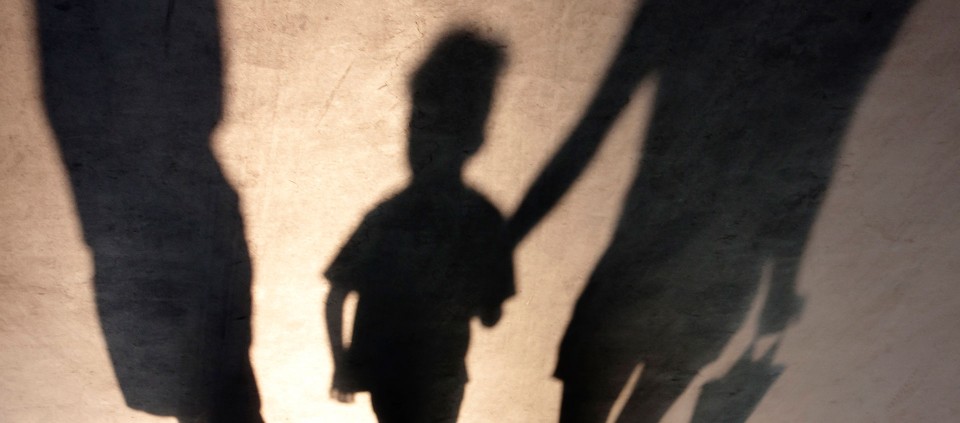Recovering from the Primal Fear of Abandonment

The feeling is visceral. I liken it to furiously paddling in a vast, dark ocean, unable to find land. There’s nothing to grab onto. It's an abyss of nothingness that largely appears, for me, at night, when I find myself alone after the end of a treasured romantic relationship. The abyss steals my sleep, undermines my confidence, and sends me into a state of fight-or-flight.
What I’m experiencing, according to psychotherapist Susan Anderson, is the fear of abandonment—a primal and universal feeling that originates in the sensations of separation and disconnection that we all experience when exiting the safety of our mothers’ wombs during birth.
“Abandonment is a feeling of being left behind,” Susan says. “It’s a feeling that’s easily triggered by any adult experience that bears resemblance to earlier times of separation distress. Going through a breakup, losing a job, being rejected by a friend, or even losing our sense of purpose—all of these can hark back to the original trauma of birth and separation, flooding us with feelings that seem out of proportion to the triggering event. At the base of these primal feelings lurk fear and shame—the fear and shame of being unworthy and discard-able.”
Susan says feelings of abandonment can arouse such powerful emotions that they lead to self-sabotage. “The distress can manifest in self-soothing behaviors,” she explains, “or quick fixes like overeating, alcohol use, or codependent behaviors. These behaviors can become habituated into entrenched patterns of self-sabotage.”
When unresolved, abandonment issues can act like a virus invading the body, mind, and soul, interfering with our well-being, self-esteem, and ability to achieve desired goals. Another result of unresolved abandonment is that sufferers can find themselves attracted to unavailable people. “Abandonment feelings from the past implant emotional memories in the mammalian brain,” Susan says. “They condition us with sensations of yearning for love that remain ever-elusive or intermittent, causing us to become like lab rats, spinning on a training wheel trying to grab for nuggets from an emotionally unavailable or intermittent partner.”
Worse, they can spawn self-abandonment, whereby sufferers abandon themselves. “People will distance themselves from their emotional core,” Susan says, “and exhibit patterns of self-sabotage like procrastination, which interferes with their ability to do loving things for themselves.”
To help people heal abandonment issues, Susan recommends Abandonment Recovery, a program of mind-body exercises that facilitate “separation therapy.” The therapy includes written and spoken exercises that focus respectively on the Inner Child (the emotions), the Outer Child (self-sabotaging behaviors), and the Adult Self (a higher self). “Separation therapy is game-changing,” Susan says, “because heretofore our emotions were merged with our behavior patterns, making us prone to automatic, maladaptive, defense-mechanism sabotage. The separation therapy exercises allow us to separate out our reactive behaviors so they can be targeted by the Adult Self and replaced with positive, goal-directed behaviors, which become healthy habits.”
The key to separation therapy is building a relationship with the self, which serves as a template for relationships with others. “Self-love is a prerequisite for accepting love from another,” Susan insists. “It’s also the impetus for manifesting our ever-expanding capacity for love toward others and the world. Healing abandonment isn’t accomplished through emotional breakthroughs alone. By learning how to nurture ourselves with self-loving actions, we learn how to nurture relationships with others.”
Participants in Susan’s workshops develop take-home tools—ongoing verbal and written dialogues and daily action plans that incrementally lead to healing primal wounds and overcoming deeply entrenched patterns of abandonment. “The tools inculcate self-love, reversing self-abandonment,” Susan says, “and they help us achieve our most important goals and dreams, including increasing our ‘love quotient’ in the world. Ultimately, we don’t think our way out of abandonment; we do our way out.”
When people begin to heal longstanding abandonment issues, they begin to see a path to a more expansive and happier life. “They feel a sense of hope,” Susan concludes. “They realize that following this path will help them finally get unstuck and lead to profound personal change.”
Find out about Susan Anderson’s Abandonment to Healing programs at Kripalu.
Portland Helmich has been investigating natural health and healing as a host, reporter, writer, and producer for more than 15 years.
© Kripalu Center for Yoga & Health. All rights reserved. To request permission to reprint, please email editor@kripalu.org.
Portland Helmich has been investigating natural health and healing for more than 15 years, as a host, reporter, writer, and producer.
Full Bio and Programs